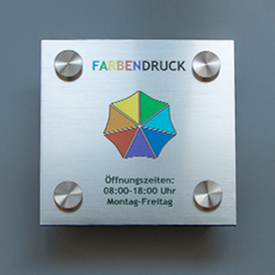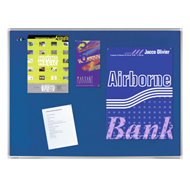How do I find a topic for a blog article that will interest my readers?
Saturday, May 15, 2021
 More and more companies are running a corporate blog these days. The reason for this are the numerous advantages: These include an improved ranking on Google for the entire website as well as additional visitors who are drawn to the company website via the blog articles.
More and more companies are running a corporate blog these days. The reason for this are the numerous advantages: These include an improved ranking on Google for the entire website as well as additional visitors who are drawn to the company website via the blog articles.But even if the advantages of a company blog clearly outweigh the disadvantages, many blog operators are initially unaware of how much work a blog actually involves. Article topics have to be searched for, researched and then elaborately prepared. This is time-consuming, so it's no wonder that many companies hire a professional blog copywriter .
The first impression counts: The topic of the article
That doesn't mean that companies can't write their blog articles themselves. On the contrary: If you have a feeling for topics and a feeling for writing, you should just give it a try. And so that the first step - the search for a good topic - is also successful, there are three tips in this article from Gregor Engel , the freelance copywriter for companies.Why is the search for the topic so important? A good topic is essential for how often your article is clicked, because you must not forget one thing: the Internet is teeming with blog articles on a wide variety of topics. So there is a good chance that your article will get lost somewhere in between the other twenty articles on the same topic. The solution: Choosing a topic that has either not been covered in any other article or only in one or two other articles.
The first tip for searching for a relevant topic that generates a lot of interest and thus also clicks should be a look at the Google Search Console (GSC) . Registration is almost mandatory for blog operators, because it offers a lot of important insights into your rankings on Google and the interests of your readers. For example, you can find out which search terms visitors used to come to your site.
On the one hand, this helps to optimize existing pages or articles for additional keywords . If, for example, you see that your article on the signage of medical practices is repeatedly reached via the keyword "internist sign", although you have not optimized the article for this keyword, then it makes sense to see whether subsequent optimization for this keyword would not draw even more traffic to your article.
The GSC contains lists with relevant keywords - a real treasure trove
The second advantage of the GSC is that you can find plenty of leads for new articles because the search terms that visitors use to find your site contain important information. If we stay with the example of the doctor's office signage article just given, you can see that a very specific topic, namely signage for internists, is of great interest. So one possibility would be to write another article just about the signage of internist practices.In this way, the GSC offers you a simple way of quickly accessing relevant topics that, firstly, fit well with your site and, secondly, are important to your visitors.
The second tip is to take a close look at the blog articles you already have —especially those that have been heavily visited in the past. Because these are the articles that bring new visitors to your blog again and again. So why not start right there and expand this source of visitors? So take a look at these articles and think about how to develop these topics further in a second blog post.
Take the example of doctor's office signage again. Topics for further articles could be signage for dentists, cardiologists or ENT doctors. Or you could write a follow-up to a first article that explores the article's content over time, along the lines of "Three years ago we covered this topic, now let's revisit it and see what's changed since then".

Comments on the blog articles are the perfect source for new article topics
Important: Comments give the reader the opportunity to name additional aspects of the article - the perfect source for new article topics!When researching one's own articles, the comments are often forgotten. Real gold pieces are sometimes hidden here that are easily overlooked. For example, if you discover several comments that all address a point that was only touched upon in the article, then you have found a topic for an article. Because of the increased number of comments, you can assume that your readership is interested in it.
The third tip for finding a suitable blog article topic is similar to the second tip, but this one is about the competition. To be more precise: the competition analysis . Check out the blogs you share the audience with. Pay special attention to the most read articles - there is often a window on the homepage that shows you the articles by popularity. Read through the articles and think about what you could do better in your own article on this topic.
Does it make sense to go into some aspects of the article in more detail? What if you wrote the article from a slightly different perspective – sticking with the example of the doctor's office signage article, it might not be written from a marketer's point of view, but from a patient's point of view. Or you add a field report. Or an interview with an expert. Or, or, or.
Attention: Doing better does not mean copying
As you can see, there are many ways to make competitor products that are doing well even better. Important: Do not simply copy the article , but make sure that you satisfy the reader's interest even better than the original article does. Because with this attitude, you have a good chance that your article will eventually rank before the original article on Google – simply because it is better.In conclusion, it can be said: Not only a good copywriter can write a good blog article! But a successful blog article is complex. So that this effort is not in vain - for example because there are only a few users who are interested in the topic - it is important to search for a relevant topic.
There are many different ways to take this first step in finding a topic. In addition to the three tips mentioned, this also includes reading specialist literature, talking to colleagues or visiting trade fairs where you can find out about the most important innovations. Everyone has a different way of coming up with new blog article topics. Find out which one is yours!




















































